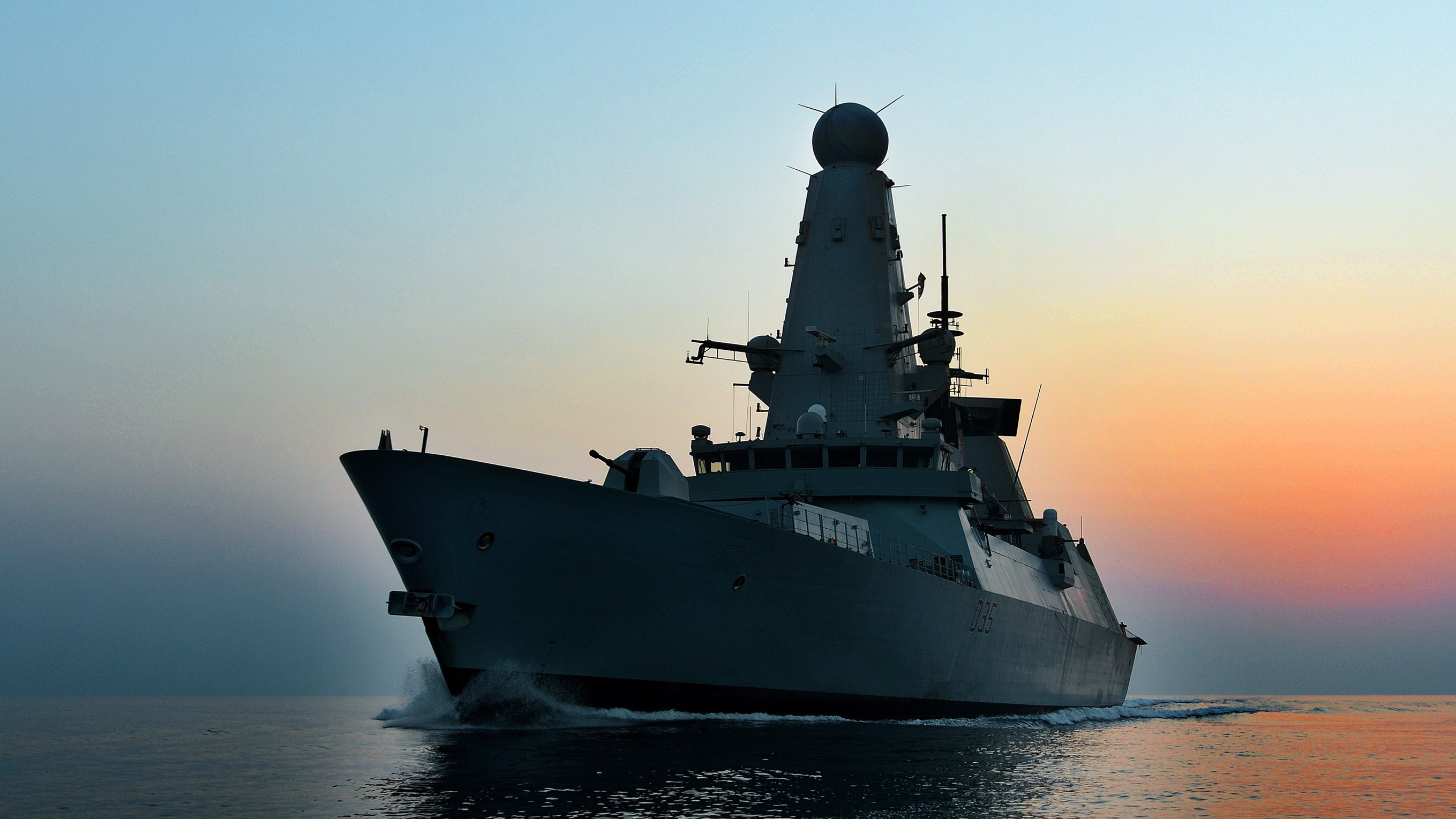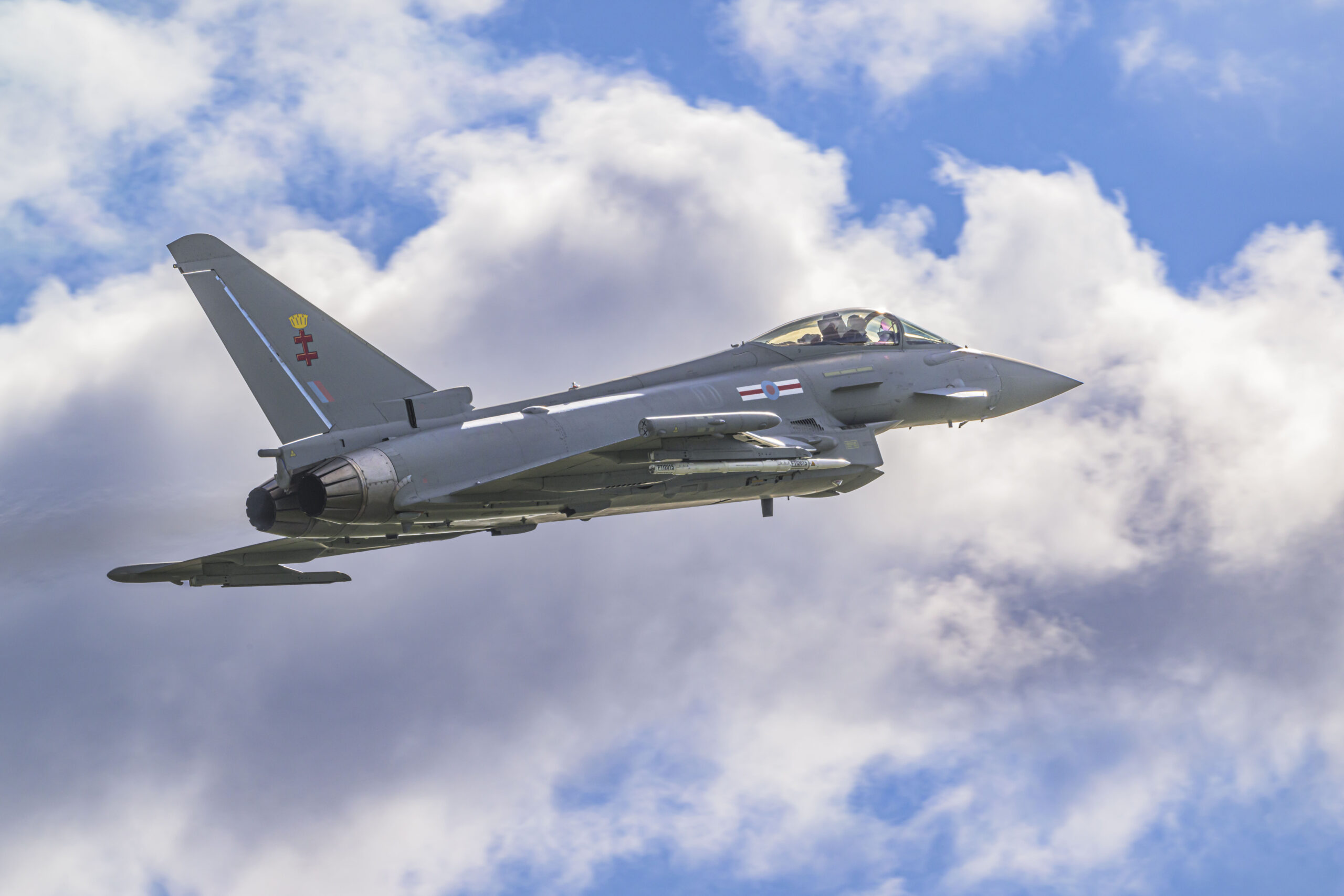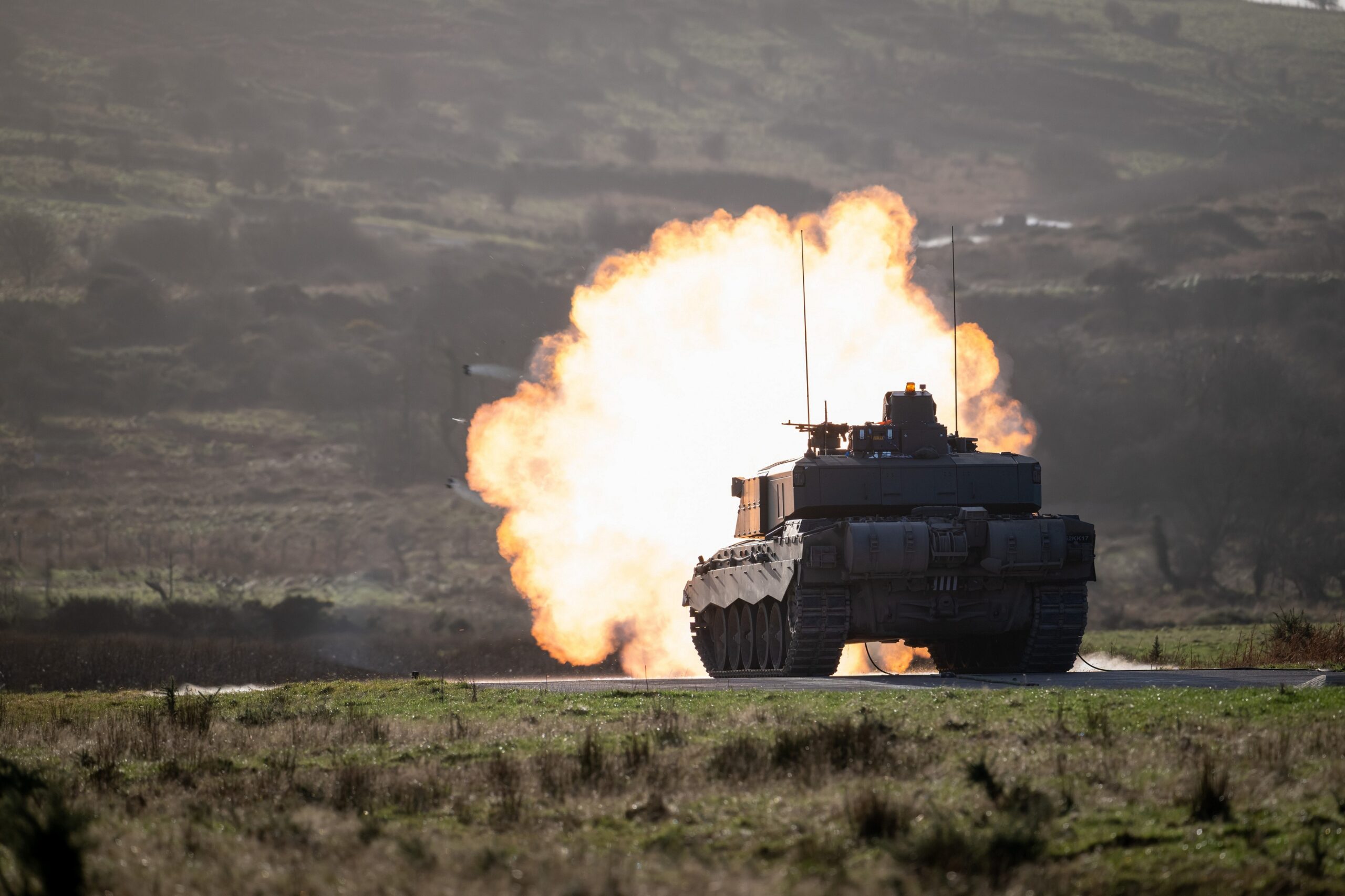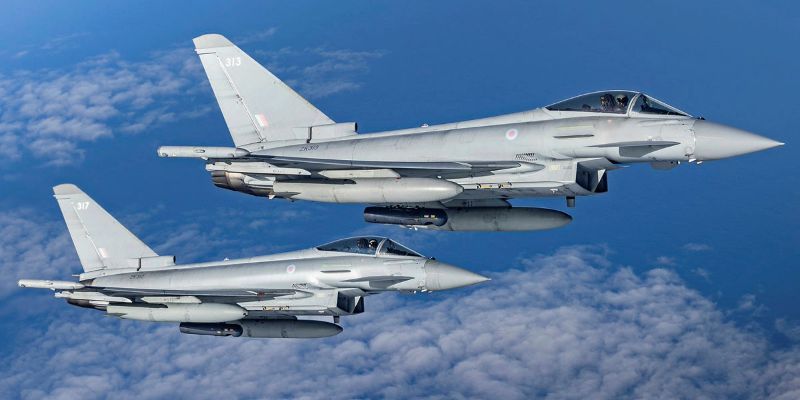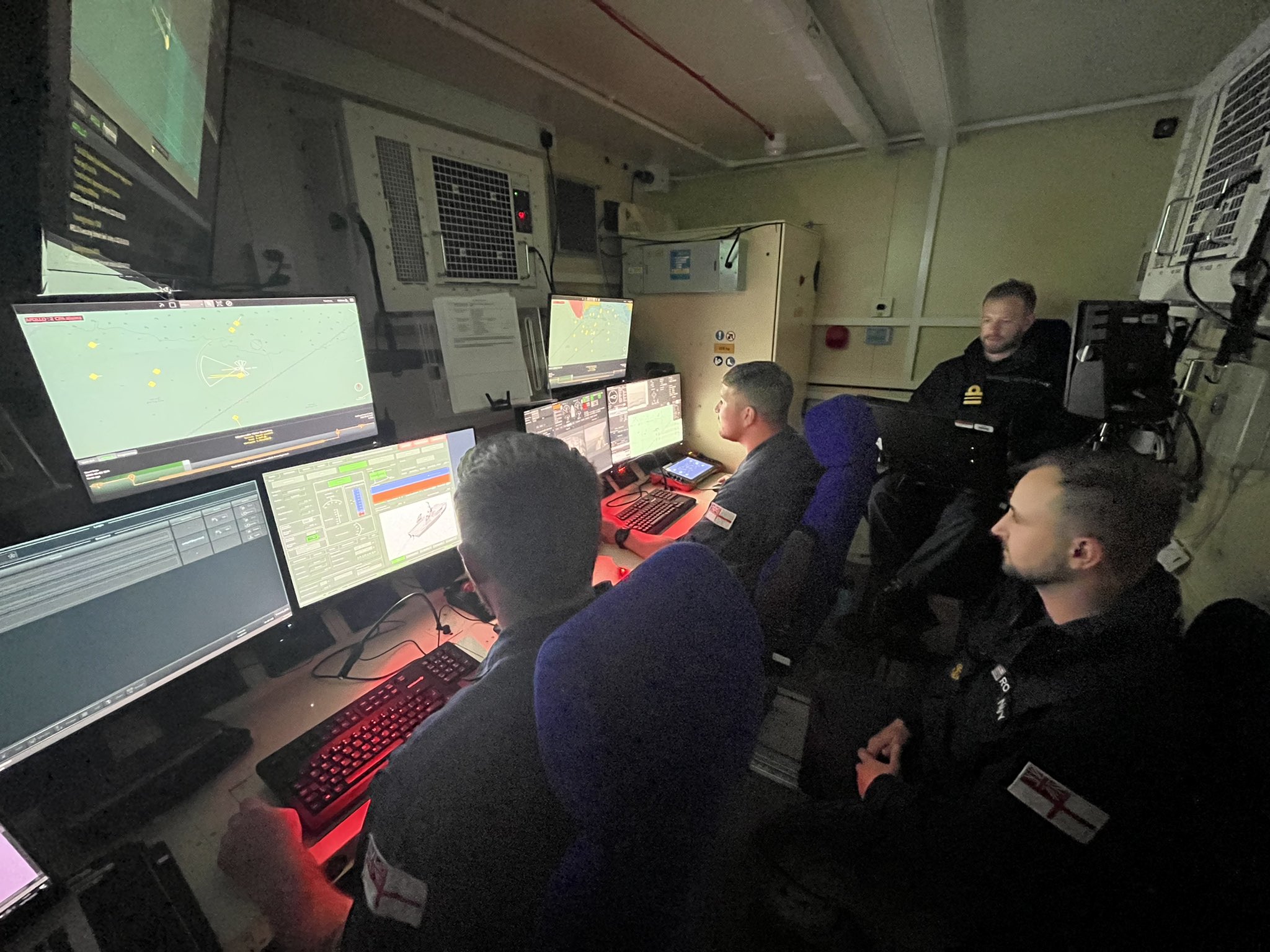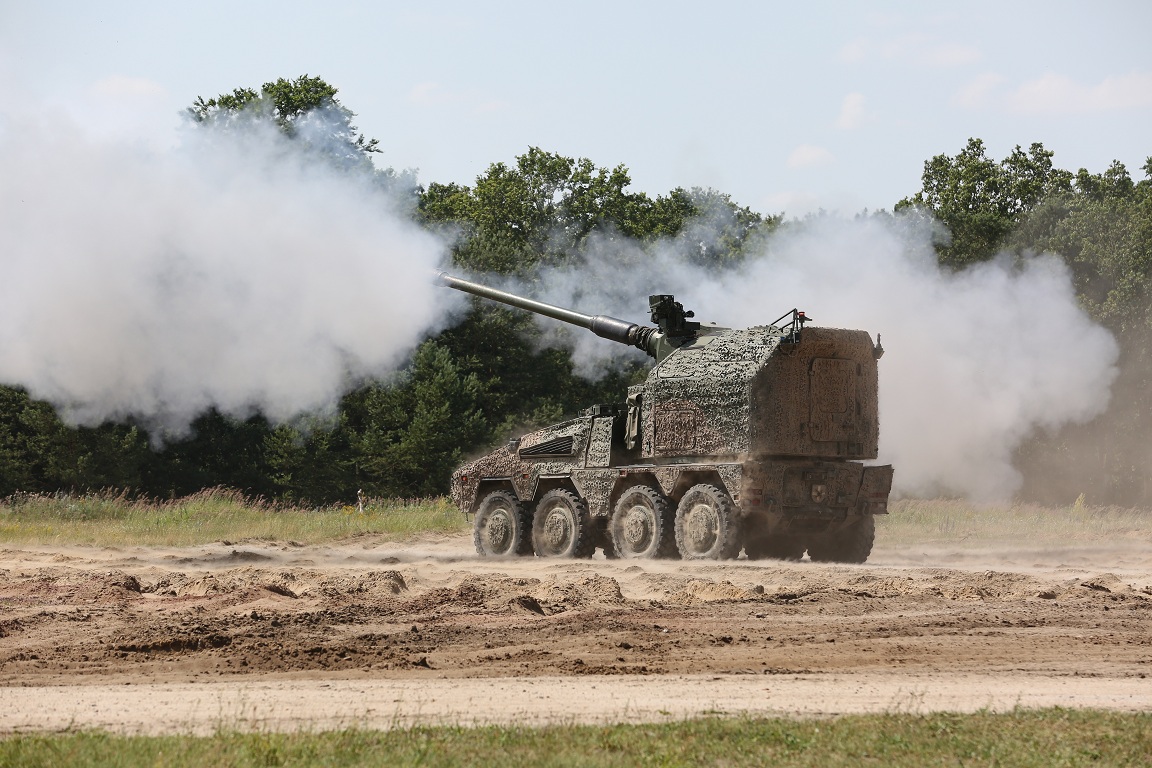Published 10 December 2024
Share this story
World-leading advanced autonomous mine hunting capabilities for the Royal Navy have moved a step closer after a prototype uncrewed boat was successfully deployed and trialled for the first time.
The Apollo Maritime Mine Counter Measure (MMCM) is a small boat-sized autonomous vessel which can be deployed from a larger ship to scan the seabed for various mine types.
The MMCM programme aims to provide advanced autonomous mine hunting equipment to the navies of the UK and France through an agreement managed by the Organisation for Joint Armament Co-operation (OCCAR), which represents both nations.
The trial took place at Scotland’s Firth of Clyde, a location which provided an effective and challenging environment complete with good water depth and coastal currents. Apollo, which features a towed sensor/synthetic aperture sonar, was launched from Defence Marine Services’ SD Northern River, which was made available as a ‘platform of opportunity’, a ship that is broadly suitable for the intended use but not purpose-built or modified for it. Apollo successfully detected exercise mines, even when sited in hard to detect locations.
This milestone also marks the first integration of MMCM equipment onto a commercial vessel, opening the door for future trials and demonstrating the potential for using commercial platforms as “floating bases” for certain operations.
Apollo was manufactured by L3 Harris under a contract with Thales (France) and delivered to the UK as a concept demonstrator in 2021. Following this successful trial, Apollo has been handed back to Thales for retrofit and upgrades ahead of being handed to the Royal Navy in 12 months’ time.
The total contract value for UK and France is €430m, of which £184m is from the UK. Work under the full production contract will support more than 200 jobs in the UK. This includes jobs with Thales in Templecombe in Somerset and Plymouth in Devon, and across its supply chain including L3 Harris in Portsmouth, Stonehaven in Aberdeen and Alba Ultrasound in Glasgow.
Andy Lapsley, DE&S MHC Team Leader said:
“This trial, which successfully demonstrated the potential for the Maritime Mine Counter Measures capability to be deployed flexibly and at pace for the Royal Navy, is a result of years of dedicated effort and collaboration by the MHC team, demonstrating our commitment to advancing mine countermeasures technology and commercial platform integration.”
He added:
“I am immensely grateful to all participants across the Defence enterprise who came together to make this happen.”
Commander Daniel Herridge, the Commanding Officer of the Royal Navy’s Mine & Threat Exploration Group, said:
“Building on previous success this has been another step in the paradigm shift of delivering Mine Counter Measures capability in a completely new way, harnessing technology and building on the skills of our people to continue to deliver world leading capability.
“Utilising the MMCM system in the SD Northern River, the Maritime Autonomous System Trials Team has operated prototype and demonstrator equipment with improved sensors and effectors from a Vessel Of Opportunity to enhance sustainability and reach to this rapidly evolving concept of capability delivery.”
He added:
“The Mine & Threat Exploitation Group will continue to support the enterprise in delivering these important trials to progress operational evaluation and accelerate capability delivery for provision of a modern and high-tech operational capability within the maritime environment, safeguarding the UK’s interests both at home and overseas.”
Philippe Commarmond, Director of International Mine Warfare Sector at Thales, said:
“In 2015, France and the UK set a bold challenge to transform their navies’ mine warfare capabilities. Their vision was ambitious: to develop a cutting-edge, integrated ‘system of systems’ for rapid global deployment, achieving swift progress without established doctrine, ensuring reliability, autonomy and cyber-security. The MMCM programme has since reached key milestones, positioning it at the forefront of global maritime mine warfare. Thales is proud, as a system integrator, to have been instrumental in achieving this latest milestone, reinforcing the UK and France as leaders in naval autonomous systems technology.”
Navy Force Generation Defence Marine Services delivers eight MOD Service Delivery Areas through two DE&S Marine Services contracts. The SDAs include provision of two offshore ships that support military training and exercises worldwide.





